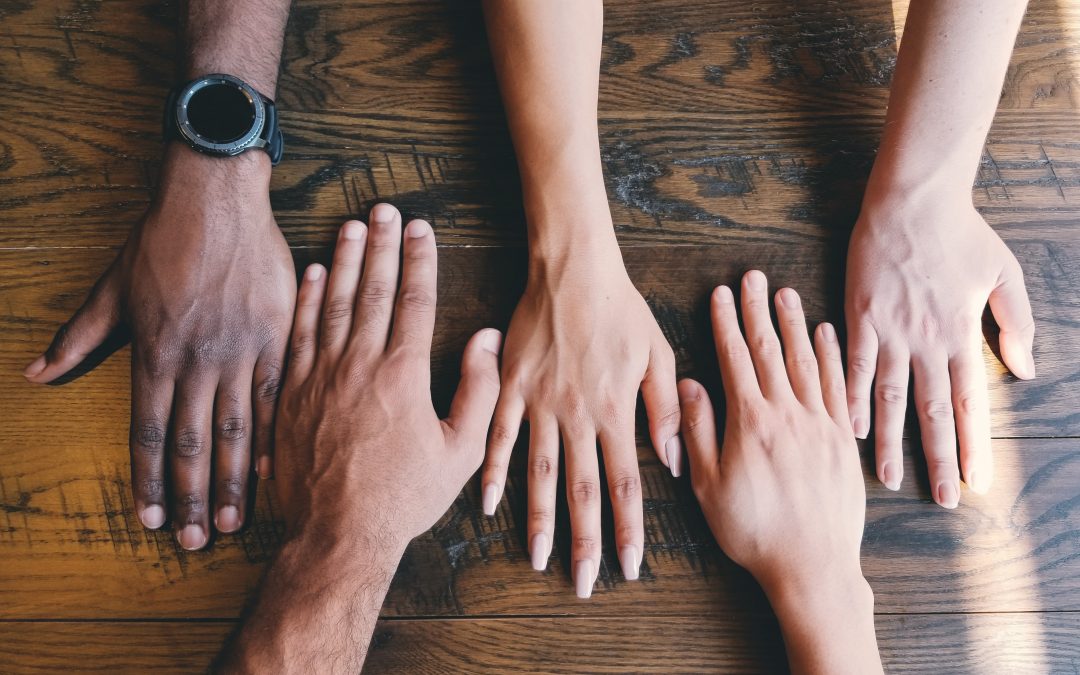I used to think I needed to do everything alone.
Everything from my personal life to my professional life. Maybe it was an aversion to asking for help. I still don’t like asking for help.
But over the years, I’ve come to understand that we’re not meant to do everything alone. Not even most things. Even more than that, I’ve experienced the wonder and joy of collaboration.
About a year ago, I began a couple different collaboration projects with some author friends. One is an author who feels stifled by plotting. She flies by the seat of her pants. I joined her in flying by the seat of my pants—a change to my regular brainstormed, organized plots. We are still working on our story, and I am having such fun writing it. Our characters are as different as we are—quirky, confident, and utterly delightful.
The other author is a plotter, like me. I had a spark of an idea for a fantasy story with a hard-hitting emotional core. We spent two hours brainstorming by Zoom. And what we came up with is so much bigger than I might have come up with myself.
There is truth in the saying, “Two brains are better than one.” If that’s a saying. I think it is. Maybe I made it up, though. (Probably not. There’s nothing new under the sun, right?)
That’s not even the whole of collaboration.
Every morning I also meet with a group of writers by Zoom. We call ourselves the Zoombies. We spend the first fifteen minutes of our time together talking about our lives. We spend an hour and fifteen minutes muting ourselves and working on our individual writing projects. And then we meet at the end of that time to discuss how our day’s writing went.
Sometimes we really do talk about how our writing session went. Sometimes we bring each other questions: What do you think about this plot point? What would you do in this kind of situation? Is the way I’ve handled this problem believable?
It’s so helpful to have that real-time feedback, to think with more minds than one.
We have a wealth of expertise and experience at out fingertips. Our friends, our colleagues, all the members of our family, have different ways of seeing the world and unique ways of approaching life and problems and solutions to those problems. I know a lot about writing, environmentalism, and managing squeezed-tight time. My husband knows a lot about technology, philosophy, and how to take an effective break and rest. We collaborate on a daily basis so I don’t have to learn how to fix a broken computer and he doesn’t have to learn how to edit our son’s ELA picture book project.
I even collaborate with my children. (You haven’t experienced real honesty until you’ve asked a 7-year-old, “What do you think of this story?”)
We think bigger together. So I’ve stopped thinking it’s “cheating” to collaborate, to bounce ideas off the people in my life. Instead, I am increasing my own brain power by inviting them into the circle. And I am waiting in the wings, to do the same for them when the time comes.
In the meantime, I get to grow closer to the people I respect, admire, and genuinely enjoy and love. We grow closer in our relationships when we ask for help.
A win-win all around, if you ask me.
I hope you have a fantastic month of collaboration with the people in your life.
Here are some of my favorite ways to collaborate with others:
1. Partner with someone on a creative project
My first novel, The Colors of the Rain, was originally written as photo responses. What I mean by that is a friend of mine, Helen Montoya Henrichs, with whom I used to work at the San Antonio Express-News collaborated with me on a creative project wherein she would send me two photos a week, and I would write poems about those pictures. I had the idea to connect the poems into a story, and my novel in verse was born. Collaborating like this with a different creative form can not only spark our creativity but also help set up a method of accountability. I held my friend accountable for taking creative photos every week. She held me accountable for making consistent progress on my story.
2. Brainstorm solutions with someone or a group of someones
This can apply to a creative project you’re working on or even as granular as a problem you’re dealing with in your life. The people around us have so much expertise and sometimes know more than we do. It’s also helpful to get different perspectives, since we all see things differently. A wise friend of mine has run a business, has a Ph.D. in the psychology of giftedness, and has lived a different life than I have. I can’t tell you how many times I’ve asked her life advice for something. It’s invaluable having two heads to brainstorm the solution to a problem.
3. Start a podcast with someone else
A podcast is a great form for engaging conversation. And when you do one with someone else, you learn about that other person, and you also might learn some things about yourself. My husband and I have a podcast for creative people, and every week we learn something new about each other, even though we’ve been married almost nineteen years. It’s been fun to discover new things about each other and ourselves.


